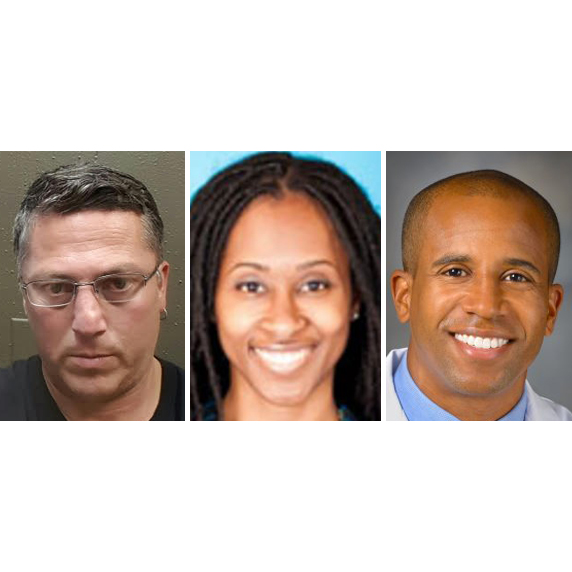 As physicians, we are often on the front lines of tragedies such as those in Louisiana, Minnesota and Texas recently and in Florida in June. During these troubling times and two contentious national conventions, we are beginning to wonder what changes are in store for our profession and our patients.
As physicians, we are often on the front lines of tragedies such as those in Louisiana, Minnesota and Texas recently and in Florida in June. During these troubling times and two contentious national conventions, we are beginning to wonder what changes are in store for our profession and our patients.
As first responders, we are intimately aware of what our patients endure after being victims of violence, after witnessing violence or struggling through the stressors of living in communities that are under-resourced, oversurveilled and overcriminalized. We also believe that, as a group, doctors have a responsibility and the collective power to stand united in support of reforms that affect the overall physical, mental and behavioral health of our patients.
Physicians for Criminal Justice Reform Inc. (PfCRJ) was established in May 2015 to advocate for reforms that eliminate the damaging health consequences that can result from negative interactions with the criminal justice system. Through our medical practice, we have all seen the myriad ways criminal justice system involvement leads to detrimental health outcomes. This is especially true for one of our most vulnerable patient populations — adolescents.
On any given night in America, more than 5,000 children are held in adult jails and prisons. Youth offenders held in adult prisons receive the lowest rate of supportive and therapeutic services in the criminal justice system despite the fact that as many as 70 percent of them have a diagnosable mental health disorder.
Health and criminal justice research irrefutably demonstrates that youth housed in adult jails are 36 times more likely to commit suicide than youth housed in juvenile detention facilities. They are also extremely vulnerable to being sexually and physically assaulted, or placed in isolation often as a misguided attempt to protect them from the adult inmate population.
This is a clearly delineated issue where psychological, sociological, criminological and medical evidence agree on a basic fact that can inform and guide appropriate criminal justice reform: There are neurobiological differences between adolescent and adult brains. Our medical literature clearly demonstrates that adolescent brains are neurobiologically and developmentally different from those of adults. Impulsive decision-making, increased risk-taking and decreased appreciation for long-term consequences of behaviors are the direct result of the neurobiological architecture and functioning of the adolescent brain.
It is for these reasons that youth, by law, are prohibited from taking on major adult responsibilities such as voting, jury duty and military service. It naturally follows that if adolescent brains are not yet ready for major adult responsibilities, then we should not hold adolescents to an adult standard of accountability when involved with the criminal justice system.
Critics of physician advocacy to end the practice of trying youth as adults will argue that some crimes are so violent and heinous that adolescents need to be punished in the adult system. Their idea is that only the most severe punishment, no matter how developmentally inappropriate, will curb this behavior and protect society from these dangerous adolescents.
This idea is analogous to parents believing that if timeouts are not working to curb their child’s behavior, placing the child in timeout with an adult who is a child molester or murderer will be more successful in getting their child to stop the identified behavior. As physicians or even as rational adults, we would never support that type of decision from parents, nor should we accept it from the criminal justice system. Additionally, it is important to note that the nature of the crime does not change the underlying biological differences in the adolescent and the adult brain.
Finally, both the medical literature and criminal justice studies suggest that counseling and therapy, followed by multiple coordinated services and skill-building programs, have the largest positive effects on juvenile recidivism. In fact, most studies show that disciplinary interventions such as incarceration for adolescents lead to increased recidivism. In a nutshell, incarcerating adolescents is at best ineffective and at worst is functioning not as a deterrent, but rather as a reinforcer of criminal behavior.
Regardless of political affiliation, the serious, long-term negative health consequences experienced by our adolescent patients as a result of being treated as adults in the criminal justice system make it our duty as physicians to take a leadership role in criminal justice reform. And so we end with the same question we started with: Presidential candidates: Will your platform call to end the prosecution of children in the adult criminal justice system?
Osvaldo Gaytan, M.D., Ph.D., is director of Physicians for Criminal Justice Reform’s Juvenile Justice Taskforce and a physician with specialties in child and adolescent psychiatry, neuropharmacology and early childhood trauma.
Nzinga Harrison, M.D., is co-founder of Physicians for Criminal Justice Reform and a physician with specialties in adult psychiatry and addiction medicine.
Edjah Nduom, M.D., is the founder of Physicians for Criminal Justice Reform and a physician with specialties in neurosurgical oncology and clinical research.

The end radicalism in youth class